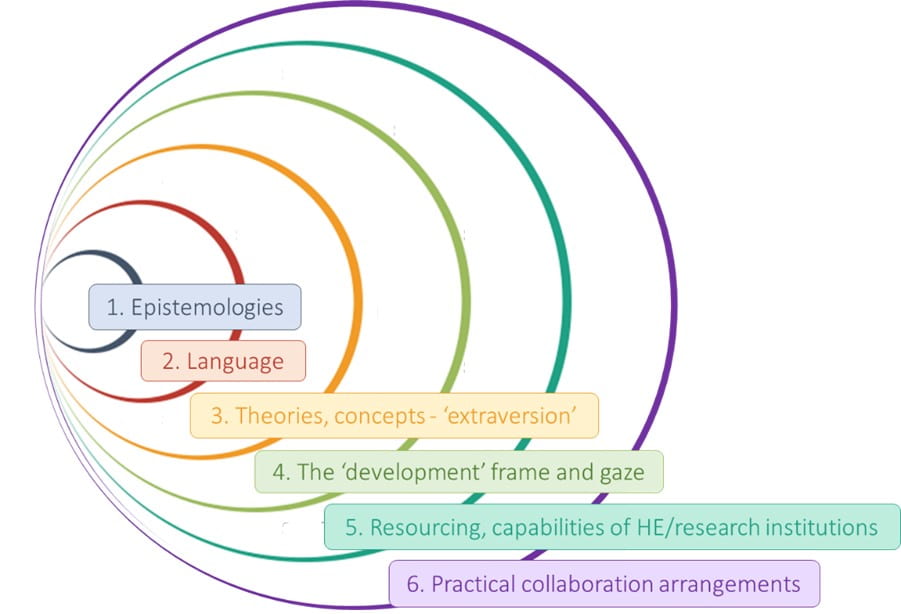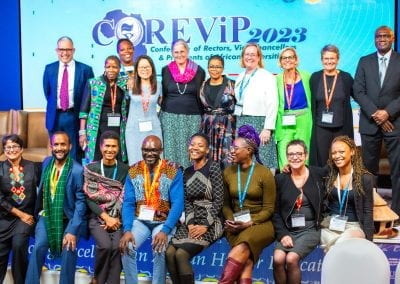By Susan Jim and Caroline McKinnon
What the Africa Charter for Transformative Research Collaborations means to the University, local communities and diaspora will be explored during the event, “Bristol and the Africa Charter”, co-hosted by Professor Marcus Munafò, Associate Pro Vice-Chancellor for Research Culture, the Inclusive Research Collective (IRC) and the Perivoli Africa Research Centre (PARC), 12h30-17h00 on Tue 31 October 2013, MShed, Bristol. For more details and to book your ticket please see Eventbrite link.
Research and the processes of producing knowledge are not free from power imbalances and inequities. All stages of research – from the development of ideas for inquiry and the conception of research projects, to data collection, analysis, publication, dissemination of and access to research outputs – involve relations among actors with different degrees of explicit and implicit power. African decolonial literatures show that the web of power relations between African and other actors involved in knowledge production is profoundly shaped by colonial experiences and legacies.
To begin conversations on how to redress these imbalances, the Perivoli Africa Research Centre (PARC) and the Inclusive Research Collective (IRC) collaborated on the ‘Small Talks for Big Change‘ seminar series. This was a series of six virtual talks in which speakers from the African continent discussed post- and de-colonial perspectives on, and lived experiences of, the multiple layers of power imbalances present within Global North-Africa research collaborations.
An initial seminar introduced the work of PARC and the series aims, and the remaining events explored the major layers of power imbalances in research collaborations between the Global North and researchers in the African continent, including:
- the inequalities in practical collaboration arrangements – Dr Catherine Kyobutungi, African Population and Health Research Centre
- the dominance of western-centric epistemologies, languages, theories and concepts in the production of scientific knowledge – Dr Divine Fuh, University of Cape Town
- the “development frame” which confines the majority of the research on the continent to an international development or aid agenda – Professor Puleng Segalo, University of South Africa
- the vast disparities in institutional resourcing – Professor Alex Ezeh, Drexel University
The final event with Professor Agnes Nairn, Pro Vice-Chancellor (Global Engagement) at the University of Bristol discussed the need to go beyond current models of equitable collaborative models and the development of an Africa-centred Charter and guiding framework for transforming research collaborations with Africa.

The Africa Charter for Transformative Research Collaborations
In a joint endeavour, Africa’s major higher education bodies including the Association of African Universities (AAU), the African Research Universities Alliance (ARUA), the Inter-University Council for Eastern Africa (IUCEA), the Association of West African Universities (AWAU), the Council for the Development of Social Science Research in Africa (CODESRIA), and the African Academy of Sciences (AAS), have co-created the Africa Charter for Transformative Research Collaborations; a framework for advancing a transformative mode of academic research collaborations with Africa that will serve to advance and uphold the continent’s contribution to global knowledge production. The initiative is facilitated by PARC together with the Chief Albert Luthuli Research Chair, University of South Africa and the Institute for Humanities in Africa (HUMA) at the University of Cape Town.
Going beyond existing equitable partnership frames, the Charter captures institutional commitment to, and shared principles, goals and approaches for, change in institutional and wider HE sector policies and standards in order to embed a mode of partnership working that redresses the multiple layers of power imbalances in Global North-Africa relations. Drawing on African intellectual thought, analyses of extant global scientific and equitable partnerships efforts, and dialogue with key HE and research actors in Europe, North America and others across the globe, the Charter:
1. articulates basic principles on how research collaborations need to be configured to redress the multi-layered power imbalances in Global North-Africa knowledge dynamics; and
2. sets out goals and guiding frameworks for institutional and HE-sector policy change to embed such a transformative collaboration mode.

The Charter was launched in July 2013 at the AAU’s Biennial Conference of Rectors, Vice-Chancellors and Presidents of African Universities (COREVIP) in Windhoek, Namibia. This was followed by discussions in September 2013 at the Times Higher Education World Academic Summit in Sydney, Australia.
Updates on the Charter can be found here.
